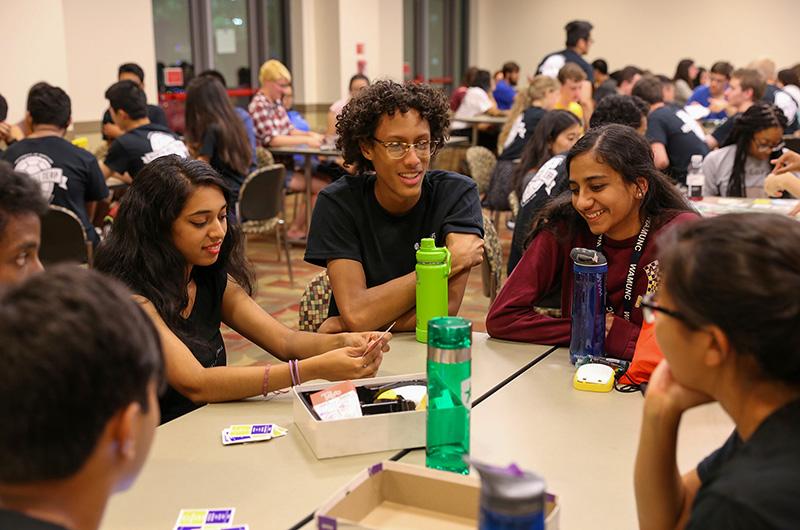Residential Curriculum
Terp Tracks is a curricular approach to the work we do in the Department of Resident Life. We use this curriculum to foster a holistic and intentional learning environment in our halls. Terp Tracks integrate academic and personal development, and support residents beyond the classroom by promoting connections, collaboration, and care in alignment with university, division, and department values. Terp Tracks is a framework that outlines learning goals, outcomes, and strategies tailored to our residents. It directly connects to “Terps Learn Everywhere” by encouraging all residents to reflect on how they Engage Inquisitively, Practice Compassion, Act with Courage, and Work for Justice.

Restorative practices are embedded into this curriculum to build a supportive and inclusive community. These practices focus on building relationships, repairing harm, and fostering a sense of accountability among residents. By embedding restorative practices, the curriculum addresses conflicts and proactively creates a positive environment where residents feel a sense of belonging.
Educational Priority
An educational priority is the overall “goal” for the curriculum when it comes to resident learning. It is a statement about the environment we create and what kind of learning it promotes.

As a result of living on campus, residents will thrive and grow as responsible and inclusive members of their communities.
Learning Goals and Learning Outcomes
Learning Goals break down the educational priority into statements of what will be learned by participating in the curriculum. Each Learning Outcome describes the actions residents need to engage in to achieve the understanding described in the learning goals.
Residents will develop meaningful relationships and a sense of belonging by engaging with peers and participating in community experiences.
Residents will:
- Build friendships within their residential and campus community.
- Identify strategies to support their academic success.
- Select and attend programs designed to educate their community.

Residents take responsibility for co-creating cooperative spaces where everyone feels a sense of safety and belonging.
Residents will:
- Participate in setting expectations and norms that support community development and academic success.
- Develop and implement strategies for effective conflict resolution.
- Recognize and describe the positive and negative impact that their actions have on their community.

Residents take initiative to foster a compassionate, inclusive environment.
Residents will:
- Explore their own identities while respecting the diverse identities of others.
- Participate in dialogues that build understanding, respect, and empathy across differences.
- Engage in restorative practices that promote community, accountability, and equity.

